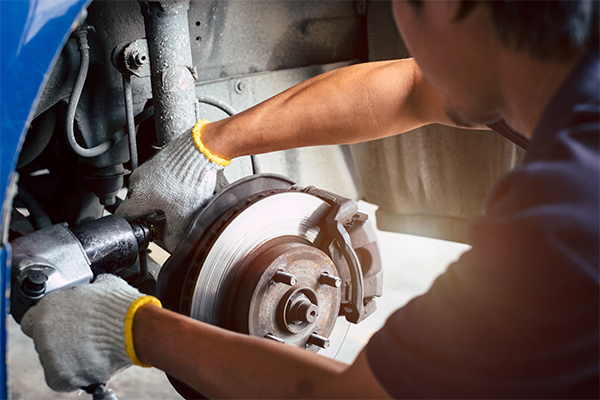Posted on 12/23/2021
.jpeg)
It is problematic and time-wasting to get into your car and realize that it won't start. It gets even more frustrating when you cannot determine what is causing the starting problems. However, in this article, you are about to learn possible reasons why your car will not start. A car that won't start is usually an indication of a problem with the batter, the alternator or the starter. But how do you know which one exactly is causing the problem, having in mind that all these three parts work in unison to power your vehicle? The battery is responsible for delivering high voltage to the starter, which cranks up your car engine then the alternator recharges the battery, allowing your car to function fully. Thus, any of these three parts may cause starting problems. Here is how to know if the battery or alternator is causing your starting issues. Signs it is a Battery Problem. The car battery is a vital part of the car, as it is responsible for providing power to the starter and ... read more
Posted on 11/30/2021

For many years, scientists have wondered why so many individuals are drawn to the smell of a new car. To their curiosity, they found out exactly what was in the scent (and spoiler alert: it's not good for you). The smell is emitted from the combination of materials used to produce a vehicle's interior. Polyurethane and polyester are a few of the most popular substances used in making your car's interior because of how well they can withstand extreme temperatures. Unfortunately, these chemicals release harmful organic compounds (VOCs) into the air. VOCs are petroleum-based solvents in materials like plastic and vinyl, and unfortunately, they are the source of the synthetic smell that some people enjoy. Why Is The New Car Smell Dangerous? While the VOCs and their fragrances disappear over time, they are considered unsafe. You may have heard about VOCs already, and you can find some of them in everyday household items (cleaning supplies, shampoo, perfume ... read more
Posted on 10/28/2021
.jpeg)
If cars aren't the sort of thing you know much about, you may be a little lost when it comes to auto maintenance (outside of an oil change). A transmission flush is a service that vehicle owners should do regularly as transmission fluid serves as both a lubricant and a hydraulic fluid. What Does Transmission Fluid Do? There are many fluids in your car, but the transmission fluid is arguably one of the most important. It's a type of liquid that works to cool and lubricate the gears of your transmission. Similarly to the other fluids, it deteriorates over time. You'll need to replace or flush it to get the job done. If you are tough on your car, such as hauling a trailer or carrying heavy loads, your transmission fluid will decay even quicker as it puts a heavy strain on the transmission. The more you drive, the heat of your transmission will break down the fluid, causing it to discolor and burn. What Is a Transmission Flush? A transmission flush ... read more
Posted on 9/28/2021

Your vehicle brake system is interconnected and relies on each individual brake part to function successfully and safely. To be specific, whenever you press down on the brake pedal, you activate the cylinder that releases brake fluid to the calipers, which then initiates your brake pads. Your brake pads then apply pressure to the rotors, creating friction needed to stop your car. All your brake parts work collectively to perform one important function: a safe and precise stop. What Is a Brake Inspection? A comprehensive, extensive, and regular brake inspection is needed for you to drive your car safely. In order to detect a problem or any signs of wear, you can rely on our certified technicians, who can spot potential issues and have the knowledge and precision to optimize brake performance. When we're done, you'll have complete assurance knowing your ride is in tip-top condition to take you anywhere of your liking. A brake inspection at Romay's Auto Service inclu ... read more